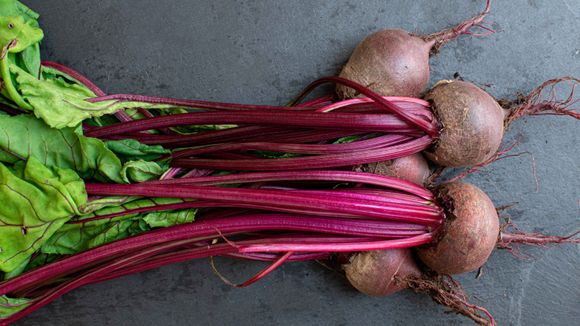Blood in the Urine: Possible Causes and Risks
Blood in the urine, also known as hematuria, can be caused by a variety of factors. Here are some potential causes and associated risks:
- Urinary tract infection: Urinary tract infections are common and often cause discomfort during urination. They can also cause blood in the urine, especially if the infection spreads to the kidneys. If left untreated, UTI infections can lead to more serious complications, such as kidney damage or sepsis.
- Kidney stones: Kidney stones are hard mineral deposits that can form in the kidneys or urinary tract. They can cause severe pain and discomfort, and in some cases require medical intervention. If left untreated, kidney stones can lead to urinary tract infections or kidney damage.
- Bladder or kidney cancer: Blood in the urine can be a sign of bladder or kidney cancer, which can be life-threatening if left untreated. Other symptoms of these cancers may include pain when urinating, back pain, or abdominal pain.
- Prostate problems: Blood in the urine can also be a symptom of prostate problems, such as an enlarged prostate or prostate cancer. Other symptoms of prostate problems may include frequent urination, difficulty starting or stopping urination, or pain during ejaculation.
Less common causes of blood in the urine may include blood disorders, such as sickle cell anemia, or hereditary diseases that affect the kidneys or bladder.
It is important to note that blood in the urine does not always indicate a serious condition, but it is always good to have it checked by a medical professional to rule out any potential risks.
Blood in the stool: Possible causes and risks
Blood in the stool, also known as rectal bleeding, can be caused by several factors. Here are some potential causes and associated risks:
- Hemorrhoids: Hemorrhoids are swollen veins in the rectum or anus that can cause discomfort and bleeding during bowel movements. They can be caused by constipation, pregnancy or prolonged sitting. While they are not usually life-threatening, they can be a sign of an underlying disease, such as inflammatory bowel disease or colon cancer.
- Inflammatory bowel disease (IBD): IBD, including Crohn's disease and ulcerative colitis, can cause inflammation and bleeding in the digestive tract. Other symptoms of IBD may include abdominal pain, diarrhea, and weight loss. If left untreated, IBD can lead to serious complications such as bowel obstruction or colon cancer.
- Colon cancer: Blood in the stool can be a sign of colon cancer, which can be life-threatening if left untreated. Other symptoms of colon cancer may include changes in intestinal habits, abdominal pain, or unexplained weight loss.
- fissures: fissures are small ruptures in the lining of the anus that can cause bleeding and discomfort. They are usually caused by constipation or trauma in the area. While they are usually not serious, they can be a sign of an underlying disease, such as inflammatory bowel disease or colon cancer.
Less common causes of blood in the stool may include diverticulitis, a condition in which small sacs form in the colon that become infected, or polyps, formations that can develop in the colon and can develop into cancerous ones if left untreated.
It is important to seek medical attention if you have blood in your stool. Early detection and treatment can improve your chances of a positive outcome.
Why You Shouldn't Ignore the Blood in Your Body Fluids
Ignoring the blood in your body fluids can lead to serious health consequences. If left untreated, it can lead to complications such as kidney damage, cancer, or even death. Even if the cause of the blood is benign, it is always better to protect yourself and seek medical help.

Photo by Val Van Sittert on Unsplash
Herbal and natural remedies that help with blood in urine and feces
While it's important to seek medical attention if you have blood in your urine or stool, there are some herbal and natural remedies that can help. It is important to note that these funds should not be used as a substitute for medical treatment, but can be used in conjunction with it. Here are a few options:
- Cranberry juice or dietary supplements for urinary tract infections: Drinking cranberry juice or taking cranberry supplements can help prevent bacteria from sticking to the bladder and urinary tract. However, it is important to note that cranberry juice or supplements should not be used as a substitute for antibiotics if bladder infection is diagnosed.
- Fiber-rich foods for hemorrhoids: Incorporating more fiber into your diet can help soften your stool and reduce inflammation, which may benefit hemorrhoids. Good sources of fiber include whole grains, fruits, vegetables, and legumes.
- Hamamelis for hemorrhoids: Hammamelis is a natural astringent agent that can help reduce inflammation and relieve hemorrhoids. It can be applied to the affected area using a cotton ball or swab.
- Aloe vera gel for hemorrhoids: Aloe vera gel has anti-inflammatory properties and can help relieve the discomfort associated with hemorrhoids. It can be applied topically to the affected area.
Blood in feces and urine can be caused by a variety of factors, including:
- Nonsteroidal anti-inflammatory drugs (NSAIDs): ibuprofen, naproxen, aspirin
- Anticoagulants: warfarin, heparin, rivaroxaban, apixaban, dabigatran
- Antiplatelet agents: clopidogrel, prasugrel, ticagrelor
- Corticosteroids: prednisone, methylprednisolone
- Certain antibiotics: ciprofloxacin, levofloxacin
- Chemotherapy drugs: cyclophosphamide, methotrexate
Allergies:
- Drug allergies: allergic reactions to medications such as penicillin or aspirin can lead to blood in the feces or urine.
- Food allergies: severe reactions to certain foods can lead to bleeding from the gastrointestinal tract and blood in the urine.

Photo by Emma-Jane Hobden on Unsplash
Foods:
- Beets: may cause red or pink color in urine or feces, often mistakenly taken for blood
- Red food coloring: used in many processed foods, candies and beverages, can cause red or pink color to feces or urine
- Tomatoes or tomato-based products: can cause red or orange feces or urine, sometimes mistakenly taken for blood
It is important to consult a healthcare professional if you notice blood in your stool or urine, as this may be indicative of a hidden health problem.









